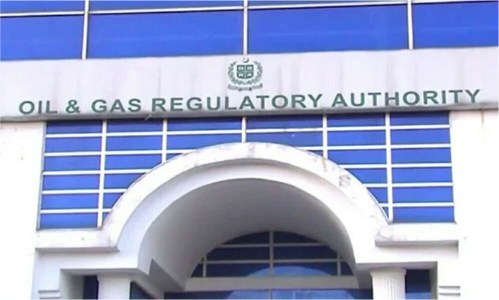The fourth Finance Minister Shaukat Fayaz Ahmed Tarin of the coalition government of Pakistan Tehreek-i-Insaf (PTI). Immediately after taking oath of his office on April 17, 2021, is faced with the daunting challenge of preparing budget for fiscal year 2021-22 amidst very difficult times when the country is faced with economic meltdown due to Covid-19 endemic, especially after the third and deadly wave. There are complete and partial lockdowns in many cities. Protection of human lives and mitigating extreme financial hardships faced by weaker segments of society, need to be given the top most priority in the coming budget, expected to be presented by June 11, 2021. The traditional approach adopted for decades in Pakistan for balancing the books, levying more taxes, containing fiscal deficit and other number games also must be reconsidered.
Bold initiatives and innovative measures are required to rethink our growth strategy in totality under the prevalent exceptional circumstances, while remaining in the programme of the International Monetary Fund (IMF). The gloomy predictions of rate of growth by the IMF, the World Bank and others can be proved wrong through fundamental structural reforms and by taking concrete steps for higher and sustainable growth.
In his op-ed of April 25, 2021, Ali Khizar mentioned: “Prime minister Imran Khan has started the second innings of his 5-year term with a new zest. A clear message has been sent to the new economic team in the first meeting of Economic Advisory Council (EAC). Only out of the box solutions are warranted. PM’s message is clear and loud–he has had enough of the stabilization measures, now is the time to focus not only on growth but sustainable growth”.
The fact is that “out of the box solutions” is provided by the Pakistan Institute of Development studies (PIDE) in PIDE Reform Agenda for Accelerated and Sustained Growth, (April 2021), launched on April 22, 2021.
Challenges faced by the new Finance Minister are grim and daunting, but he looks determined to follow the agenda of growth. The issue of stabilisation versus growth will continue vis-à-vis the IMF and the World Bank presenting their prescriptions. It is pertinent to mention that before taking the oath of office, Shaukat Tarin openly criticised the economic policies of the PTI government and his main target was high interest rate by Governor of State Bank of Pakistan and his two predecessors, who according to him, entered and revived the IMF programme “unprepared” and “without any plan”.
Shaukat Tarin is further quoted as saying the following: “If the Federal Board of Revenue (FBR) does not increase its revenue to 15%, then the country will run out of money to spend. The FBR will have to bring revenue to 20% in 5-7 years […] otherwise the country will not be able to achieve an economic growth rate of 7-8%”.
Shaukat Tarin is fully cognizant of the fact that the coalition government of PTI before the release of US$ 500 million tranche by the IMF on March 24, 2021 agreed to make amendments in the Income Tax Ordinance, 2001 to withdraw tax exemptions or curtail them through tax credit involving complicated procedure and unreasonable conditions. Resultantly, the President of Pakistan in exercise of the powers conferred by Article 89(1) of the Constitution promulgated Tax Laws (Second Amendment) Ordinance, 2021” (Ordinance VII of 2021) on March 22, 2021, with immediate effect.
The Tax Laws (Second Amendment) Ordinance, 2021 is aimed at diluting the beneficial tax exemptions granted to Chinese Independent Power Plants (IPPs) but maintaining the same for IFC-funded projects of destroying our growth due to high cost of energy. Shaukat Tarin has showed determination to deal with it but not necessarily as suggested by IMF through price hikes in electricity and imposition of heavy petroleum levy as both are going to create negative impact for businesses and purchasing power of the citizens.
In view of conditions contained in IMF’s Country Report No. 2021/073 of April 8, 2021, the government of PTI in the coming days, as hinted by Shaukat Tarin, will have to re-negotiate with the IMF as further taxation can be detrimental for economy. On the contrary, there is a need to reduce the rates and broaden tax base, if the PTI government is to ensure survival and revival of businesses adversely affected by Covid-19 pandemic.
The federal and provincial governments need to generate and spend more money for infrastructure improvement to create more employments and ensure higher growth, engaging private sector to take part in public projects. This would kick-start the economy. Simultaneously, the governments need to reduce wasteful expenditure, right-size the monstrous size of their machinery, monetize all the perquisites of civil servants and make taxes simple and low-rate.
Devising a rational policy and revenue mobilisation strategy is the biggest challenge before Shaukat Tarin. All agree that we need to adopt economic policies aimed at rapid growth and investment. On taking charge, Shaukat Tarin rightly highlighted that his top most priority would be sustainable growth and prosperity for all the citizens. Taxes will increase with growth and not by high taxes and withholding provisions. The contrary prescription by the IMF of higher taxes and costly energy will lead to unemployment and dismal growth. Shaukat Tarin has hinted at spending Rs 900 billion under the Public Sector Development Programme (PSDP) in the next fiscal year. This is Rs 100 billion higher than amount approved by the federal cabinet under the Budget Strategy Paper 2021-22. The real issue is of spending. During the first nine months of this fiscal year, only Rs 264 billion was utilised only 40% of the annual allocation.
The growth path as suggested in PIDE Reform Agenda for Accelerated and Sustained Growth, (April 2021) will induce investment and revenue mobilisation to achieve fiscal consolidation, inclusive development and prosperity for all the citizens. The prerequisites are all-out reforms in administrative, judicial and other colonial-style institutions, drastic reduction, rather elimination of wasteful expenses on monstrous state machinery that is costly as well as inefficient and corrupt. The federal and provincial governments need to generate and spend more money on infrastructure improvement to create more employments and ensure higher growth, engaging private sector to take part in public projects. This would kick-start the economy. Simultaneously, the governments need to reduce wasteful expenditure, right-size the monstrous size of their machinery, monetize all the perquisites of civil servants.
The main malady of our tax system is that while the rich remain outside the tax net, the poor are paying exorbitant GST on items of daily use. Shaukat Tarin needs to overhaul the incompetent, inefficient, fragmented and corrupt tax machinery. The untapped income/wealth in Pakistan is monstrous at federal and provincial levels. If we manage to collect tax of Rs 8 trillion in the coming two years at federal and Rs 2 trillion at provincial level, the federation and the federating units with total revenues of Rs 10 trillion in the kitty will not require fresh domestic and foreign loans.
(The writers, lawyers and partners of Huzaima, Ikram & Ijaz, are Adjunct Faculty at Lahore University of Management Sciences (LUMS), members Advisory Board and Visiting Senior Fellows of Pakistan Institute of Development Economics (PIDE))





